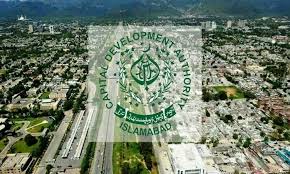Pakistan reviving Belt and Road Initiative projects: Ahsan Iqbal

Abdullah Jan
Islamabad: Federal minister for Planning, Development and Special Initiatives, Ahsan Iqbal said here on Tuesday that the incumbent government was hopeful to inject some fresh momentum into projects that fall under China’s Belt and Road Initiative, as it tries to boost the country’s troubled economy.
The government is looking forward to joint ventures for renewable energy projects, agriculture collaboration and possibly enticing some Chinese companies to relocate to Pakistan, Ahsan Iqbal, who also co-heads the committee responsible for the China-Pakistan Economic Corridor said in an interview with Bloomberg.
“Yeah, I’m very hopeful because I was there in China recently and I had meetings with their senior leadership…So I see great interest on the Chinese side to revive the momentum for CPEC and also to take it into the second phase,” he said
Pakistan was seen as a flagship destination for BRI projects, with CPEC — which includes a port in the southern town of Gwadar and new power plants — the crown jewel. The progress on new projects stalled in the aftermath of the COVID-19 pandemic and amid Pakistan’s on-going economic difficulties that have required the International Monetary Fund’s intervention. According to Bloomberg report, projects worth about $25 billion came online in the first phase, including power plants that ended the nation’s chronic power deficit. A Pakistani committee approved a long-delayed railway upgrade project last week.
The project will be done in two phases “so there is not a big burden on Pakistan,” said Iqbal. The railway, in its first phase will run from Karachi, the southern coast city, to Multan, a little over halfway to the capital, Islamabad. The government has also finished some key BRI projects that were pending for years: a water-supply project in Gwadar, dredging work at the port and an electricity transmission line from Iran. “So all these things really help China see that the new government is again serious and it restored their confidence that now Pakistan is, you know, serious about CPEC initiatives,” said Iqbal.
To mark the tenth anniversary of CPEC last year, China’s Vice Premier He Lifeng unveiled five new corridors including one focused on growth to boost economic activity in Pakistan. One change in the second phase would likely involve Islamabad taking a step back while urging the private sector to forge partnerships with Chinese firms. The other big focus, albeit a long-shot prospect, is to try and attract Chinese firms thinking of relocating from China amid rising labor costs and heightening geopolitical tensions. “That would be a success because at the moment more than 80 million jobs are being relocated from China to other countries because of the high level cost in China,” said Iqbal. “They have gone to Vietnam and you know, Laos and Cambodia. There is now overcrowding there. So they are certainly looking for new places,” he added.





